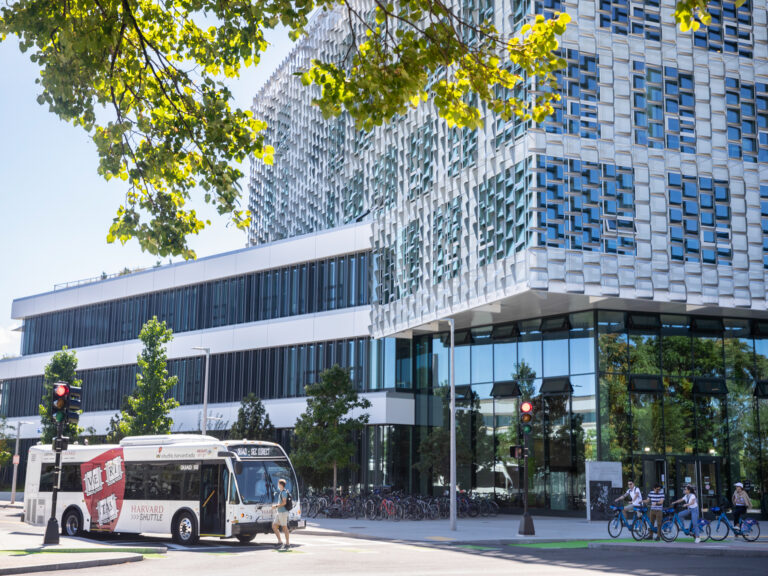Reimagining transportation systems
Sustainable Transportation
Harvard is developing and investing in sustainable modes of transportation, ensuring that walking, cycling, and public transport are safe, affordable, and accessible. Learn more about all transportation options from Harvard Transportation and Parking.
On the road to a fossil fuel-free future
Harvard invests in four 100% electric buses
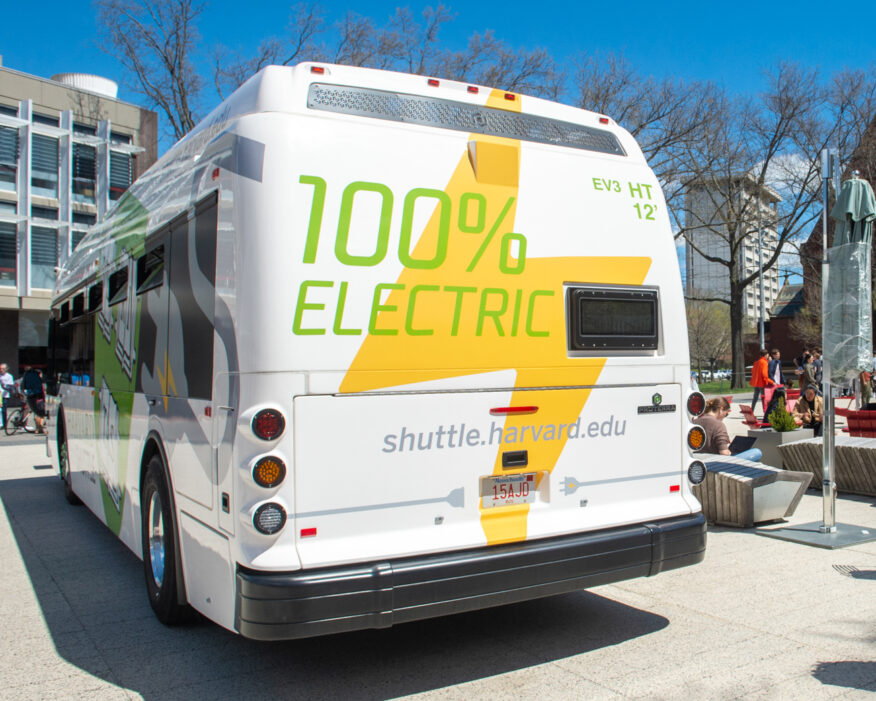
Harvard’s Sustainable Transportation Goals:
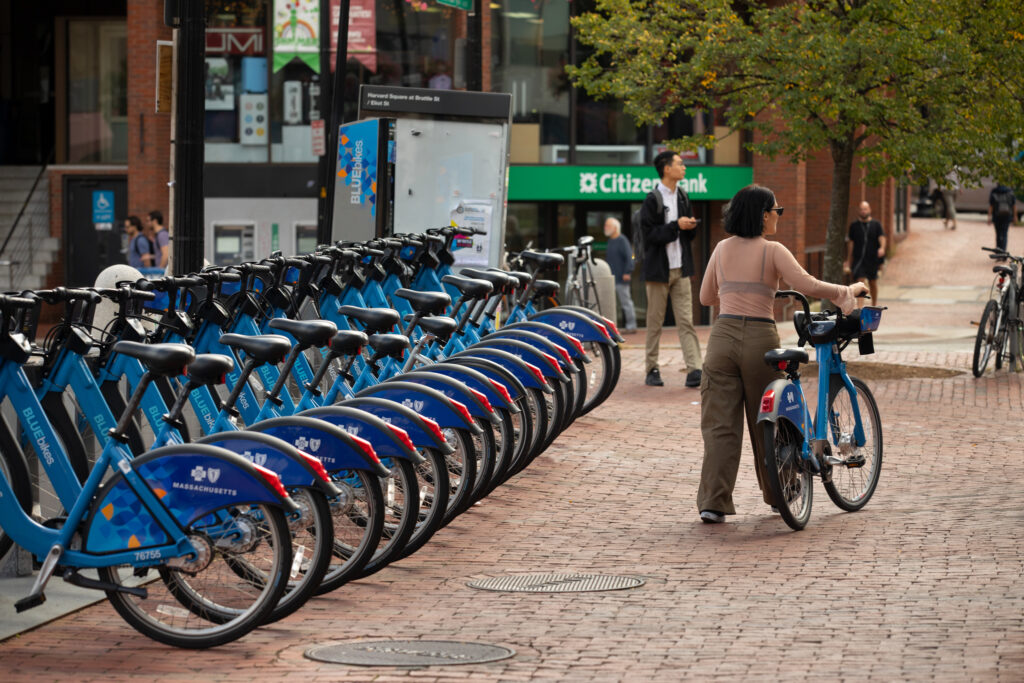
- Complete the transition of Harvard’s shuttle-bus fleet to electric by 2035
- Set new target dates for its remaining fleet vehicle types by the end of 2026, as part of the University’s commitment to be fossil fuel-free by 2050. This roadmap will include an outline for installing more charging infrastructure for University vehicles and equipment.
- Maintain at least gold-level status in the League of American Bicyclists’ Bicycle Friendly University Program, which evaluates whether universities are effectively encouraging bicycling and protecting cyclists’ rights.
- Support and enhance the pedestrian experience and sufficiently accommodate other personal transportation, such as Bluebikes, e-bikes, and scooters.
- Continuously improve sustainable transportation opportunities, programs, and incentives for Harvard affiliates.
Sustainable Commuting
The CommuterChoice Program (Cambridge/Allston) and MASCO (Longwood) provide employees with benefits and programs that encourage transit use, bicycling, walking, and carpooling.
- Discover the many bike benefits available to Harvard employees.
- EV charging stations: Electric Vehicle Charging Stations (ECS) | Harvard Transportation & Parking
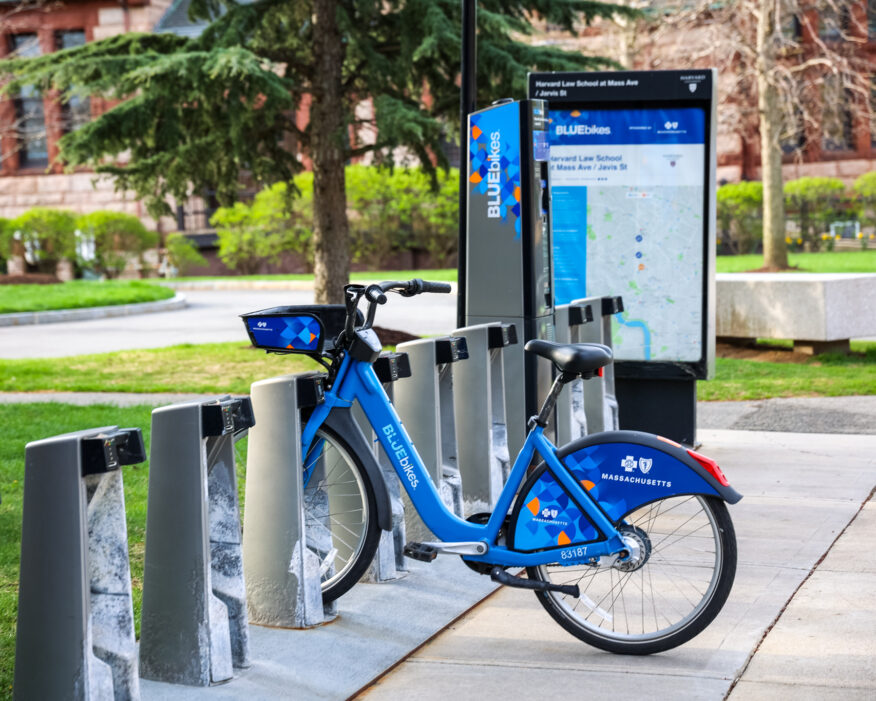
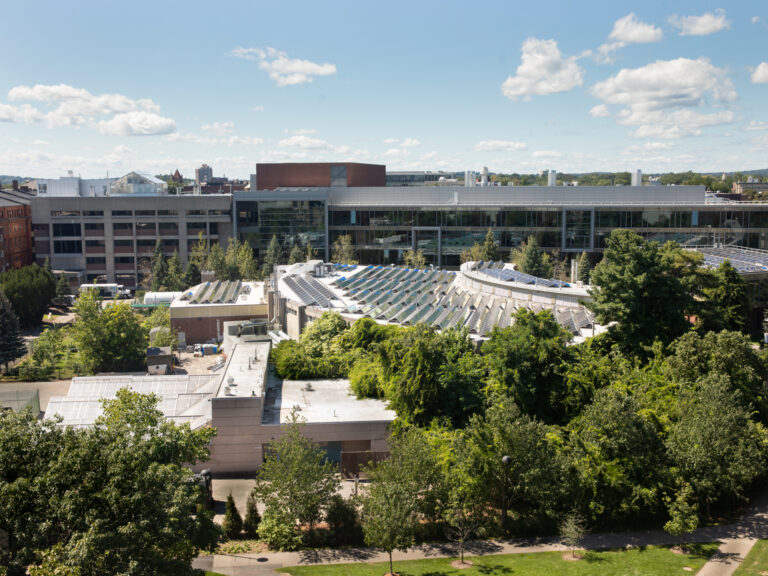
featured
Learn More
How We Operate
Harvard is accelerating new systems that enable healthier, low-carbon living—creating systems that can be scaled and adopted more broadly.
